
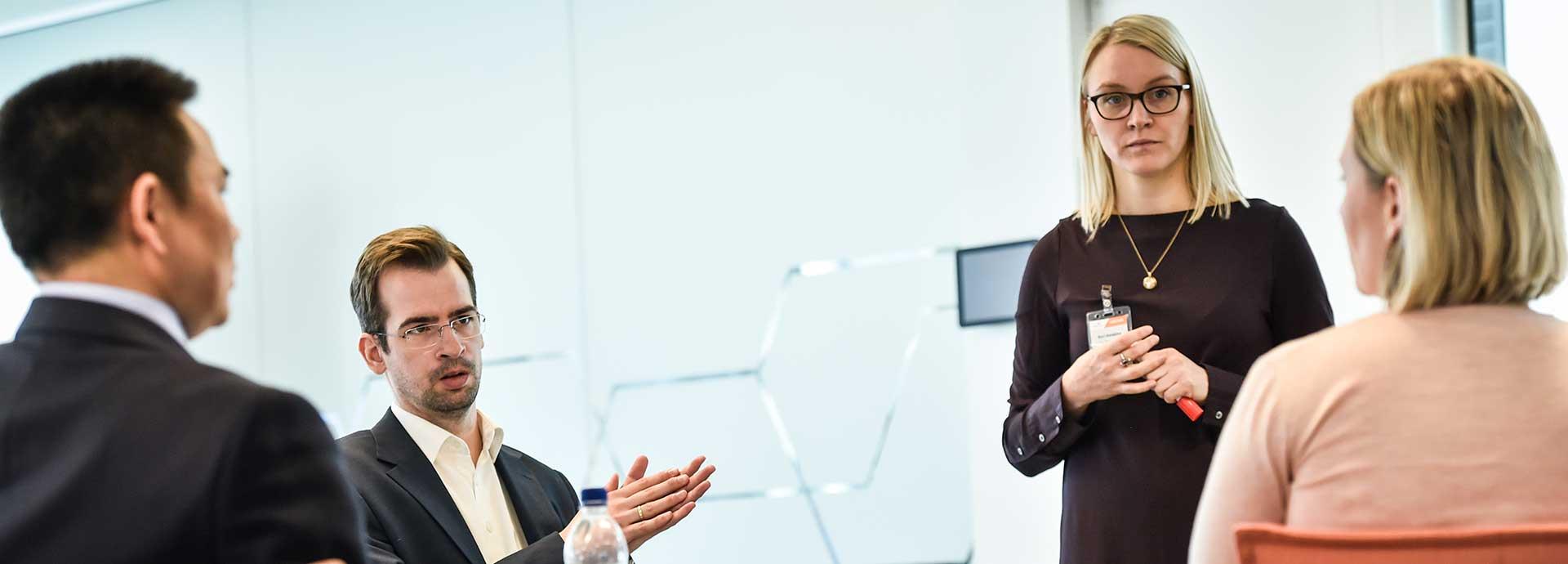
What will it take to rid our planet of its plastic problem? How can we do this in a cost-effective and practical manner? Those were the questions that were on top of mind at the recent Wärtsilä X The Ocean Cleanup event with different stakeholders coming together to look at possible solutions.
An estimated eight million tonnes of plastic waste enters our oceans, rivers and lakes every year, threatening marine ecosystems and consequently, the global food chain. In fact, a report by the Ellen MacArthur foundation suggests that by 2050 there could be more plastic (by weight) in the oceans than there are fish.
The dangers of plastic pollution in our waters are clear to see. Less clear, however, are the possible solutions to this problem. This is why the Wärtsilä X The Ocean Cleanup event was so significant, helping bring together experts representing a cross-section of environmental action, research and business, to discuss potential ways to combat this problem.
With representatives from Wärtsilä, ocean plastic pollution organisation The Ocean Cleanup, Finnish fuel refining and marketing company Neste Oyj, VTT Technical Research Centre of Finland Ltd, the Norwegian plastic to liquid company QuantaFuel, and the UK’s Oxford Sustainable Fuels, the hope is that collectively, these organisations would be able to come up with innovative and practical solutions to tackle the problem at different points in its lifecycle.
The Wärtsilä X The Ocean Cleanup event followed up on industry developments like the one taking shape at the Port of Amsterdam, where a plant has been built to convert unrecyclable plastic to diesel fuel for cargo ships.
“What we hoped to achieve from this event was to try and explore and inspire the most reliable means of turning plastic into fuel in a viable way and with a positive business case,” said Fredrik Östman, General Manager
of Wärtsilä’s Marine Business, Business Development. “The technologies exist, so the next stage is to establish a feasible business model.”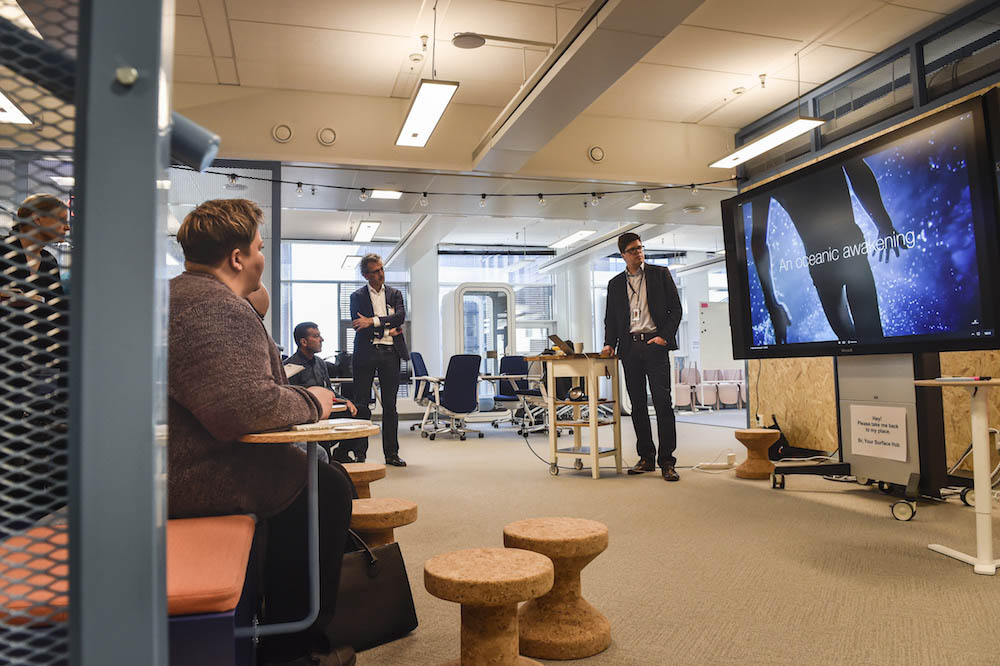
An oceanic awakening
The starting point for any conversion of ocean plastic has to be with the considerable challenge of retrieving it from the ocean, and that is why The Ocean Cleanup is a crucial link in the chain.
“We’re a small start-up whose Dutch founder, Boyan Slat, was only 16 in 2013 when he conceived a lifting machine that attracted the biggest ever Kickstarter campaign at the time,” explained The Ocean Cleanup, General Manager Plastic Valorization, Guy de Sévaux.
The project that followed involved a great deal of research to determine the source and movement of the plastics in the ocean, culminating in the launch of a 600-metre-long floater with a three-metre-deep ‘skirt’ that corals,
accumulates and extracts the plastic. This solution, said de Sévaux, is estimated to extract 50% of the ‘Great Pacific’ garbage patch in 5 years’ time.
Guy de Sévaux
Turning plastics, whether from the ocean or from landfills, to fuel involves the process of pyrolysis, whereby the plastic is cracked by rapid heating. One of the challenges highlighted by Ben Williams of Oxford Sustainable Fuels and
his CEO Dr Tiancun Xiao, both present at the Helsinki event, is the marketable quality of crude pyrolysis oil and they presented a possible solution for the upgrading of the oil to transportation quality fuels in an energy efficient
manner.
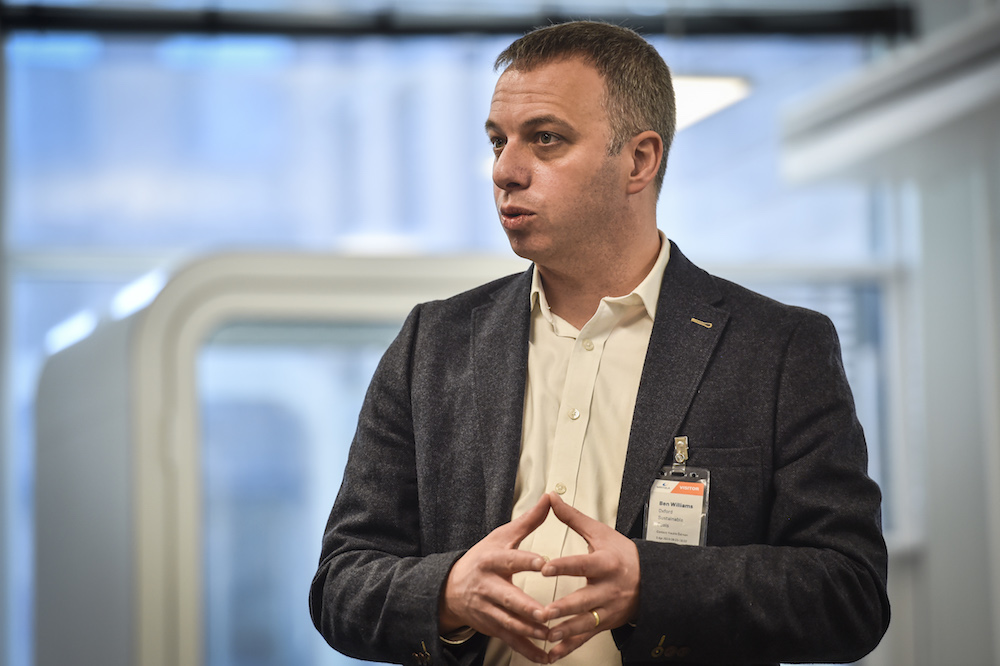
Ben Williams
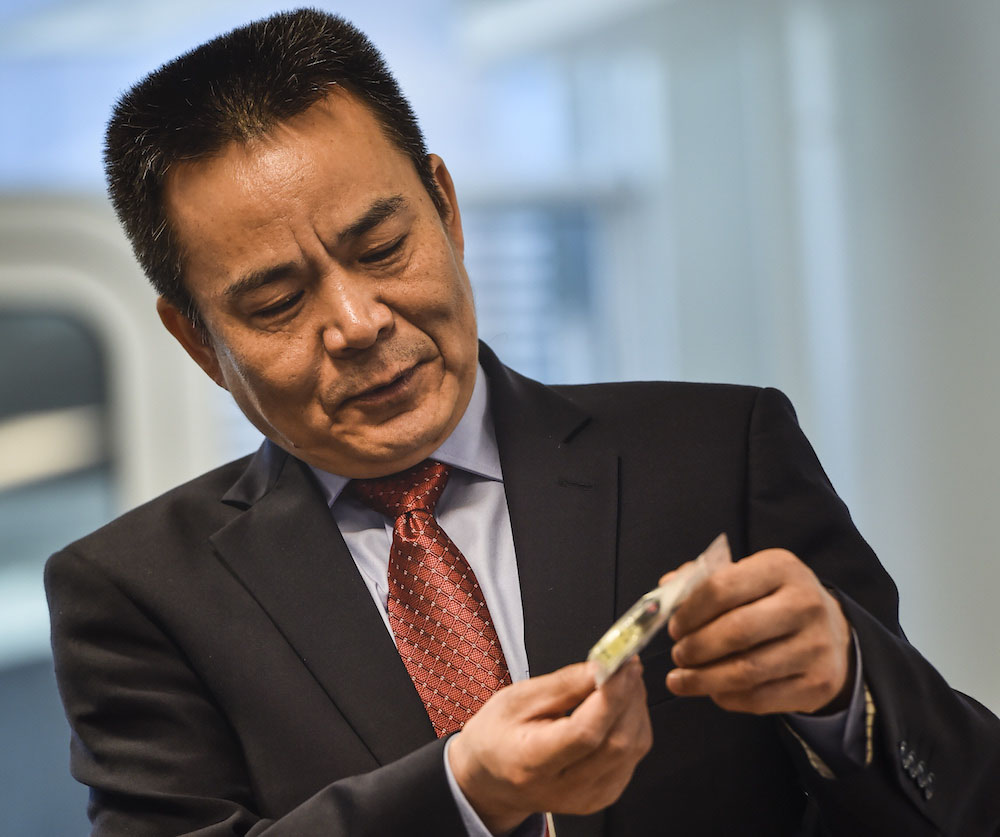
Dr Tiancun Xiao
Anja Oasmaa, Senior Principal Scientist for Sustainable Liquid Fuels at VTT, expanded on some of the challenges connected with pyrolysis, based on the more than three decades of research carried out into the process
by the organisation. She emphasised also the importance of identifying the nature of the ‘feedstock’, that is, the composition of the plastic waste, to determine the kind of fuel it might produce. Outi Teräs, Research
and Development manager for Feedstock at Neste, described her company’s goal of processing a million tons of waste plastic feedstocks from 2030 onwards. The afternoon workshops pursued the challenge of how to pre-process plastic to improve the
reliability of pyrolysis.
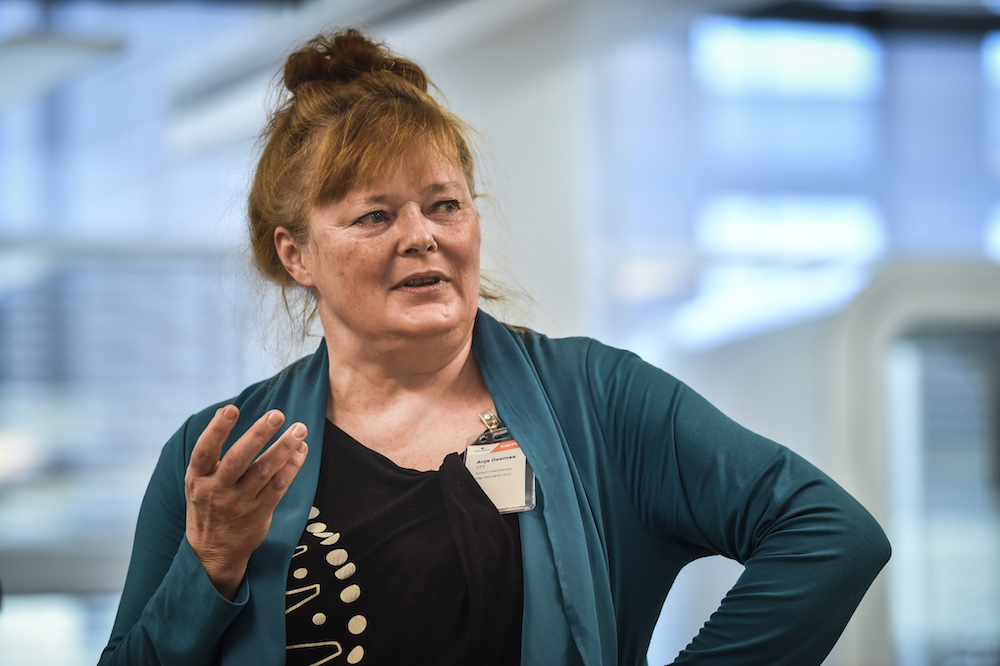
Anja Oasmaa
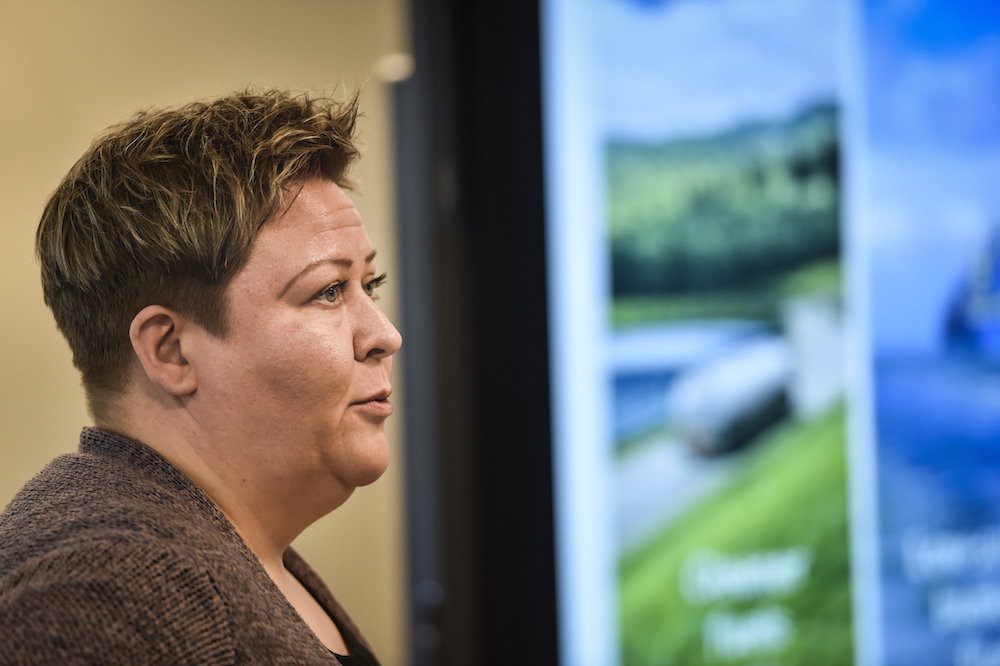
Outi Teräs
“Dealing with plastic is an inspiring challenge, a global issue, it matters to everybody and our kids will inherit this,” said Thomas Steenbuch Tharaldsen, CCO of QuantaFuel. “We have to act now.
It’s a good business opportunity but it’s also a global environmental issue that has to be addressed. At QuantaFuel we are interested in the plastic that cannot be recycled and it’s not our aim to challenge established recycling
processes. Later this year, Europe’s first plastic-to-oil plant is starting to produce low carbon fuels and chemical products from Danish plastic waste. This plant will contribute to incentivise getting plastics away from nature and incineration.”
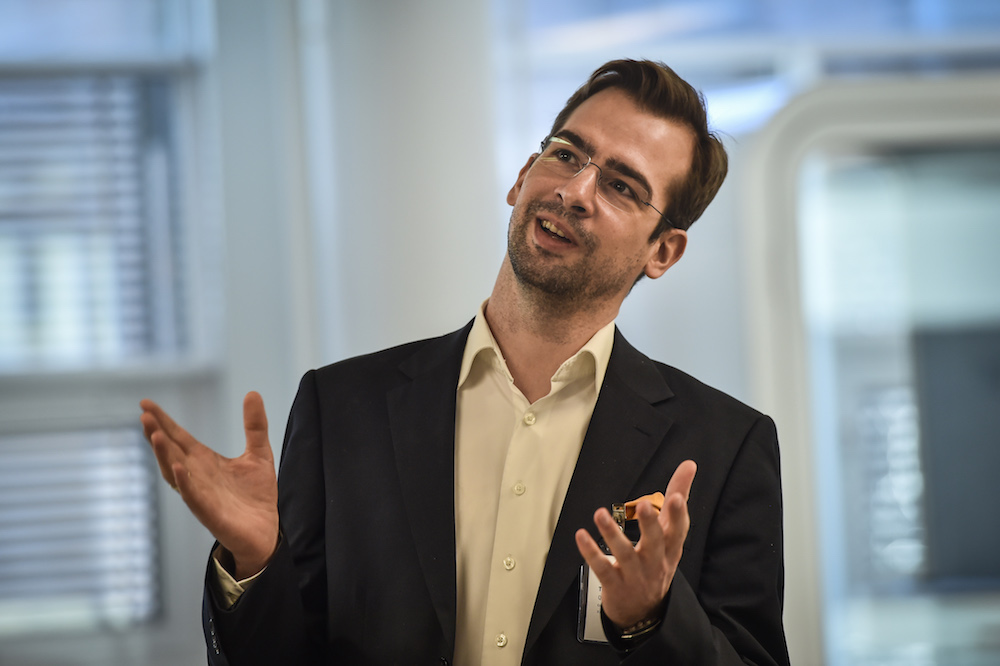
Thomas Steenbuch Tharaldsen
The right network
This is what makes initiatives like the Wärtsilä X The Ocean Cleanup so important. By highlighting key issues and allowing for inputs from different stakeholders, it creates the opportunity for us, collectively, to get a comprehensive grip on the challenge. Furthermore, it helps in creating a testbed of sorts that will allow the practicalities of different technologies to be debated and backed by knowledge accumulated from different sectors.
“Wärtsilä had the right network to bring people together, and we have shared questions on which we’d like to focus,” said Siiri Hatakka Quality, Environment, Safety and Health Manager at the Ocean Cleanup, who expressed the wish to hear business plans for pyrolysis and more about pre-processing.
“We had a great workshop where I think all the parties learned a lot about the different challenges involved with turning plastic into fuel in reality,” said Östman. “In particular, the workshop discussions highlighted the importance of pre-processing to ensure a stable quality of the feedstock into the pyrolysis process as well as of the post-processing to increase the value of the end product.”
This workshop gave an encircling understanding of the current possibilities and challenges to turning ocean waste plastic into fuel and provided a great stepping stone for further decisions on how to move forward. What other futuristic ideas
and solutions will this bring in, and will it finally help solve the problem of ocean plastic once and for all? Watch this space.


